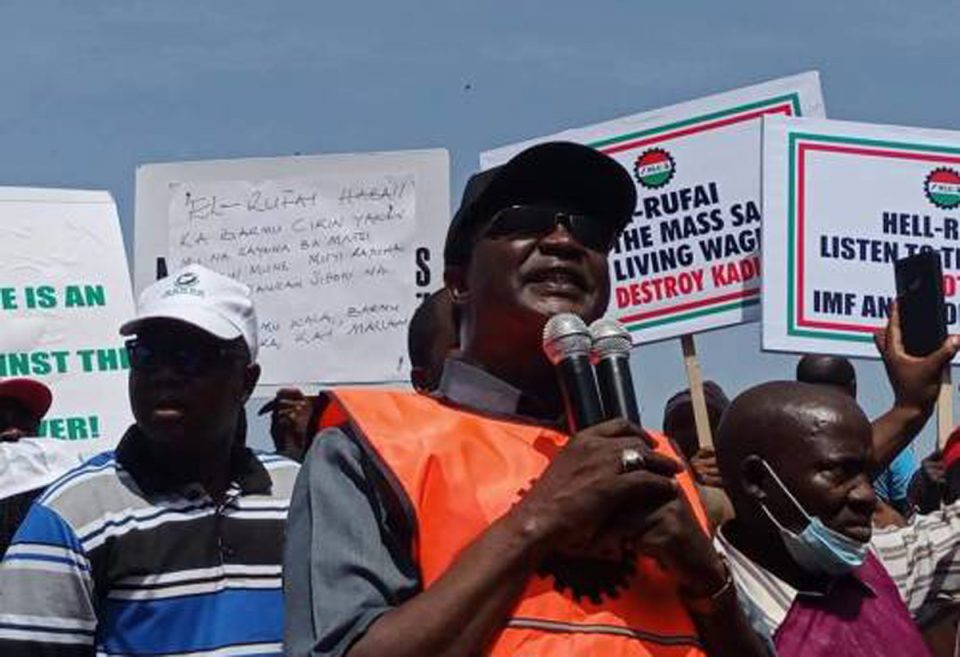President of the Nigeria Labour Congress, Ayuba Wabba has alleged that the emergence of queues in filling stations are part of conspiracy theories to force subsidy down the throat of Nigerians.
Wabba said the NLC was watching closely as events unfold.
The NLC had directed its affiliates to mobilise for nationwide protests following the proposed plan by the Federal Government to remove fuel subsidy.
However, following the decision of the government to drop the subsidy removal plans, the NLC rescind its decisions on January 25, 2022.
There has been increasing queues in Lagos and Abuja with black marketers flooding major highways with petrol in cans, selling to motorists on the roadside.
Speaking at the Nigeria Union of Teachers solemn assembly on Tuesday, the NLC President questioned why there was fuel scarcity immediately after the government stated that it had shelved its decision to remove the fuel subsidy.
Wabba said: “We are very watchful. We have seen that queues are surfacing which means that there is a conspiracy theory to force the policy of removal of fuel subsidy down the throat of Nigerians.
“We have found out that some of these filling stations have products with three to five dispensing machines but they will use one and then close by 5 p.m. This was not the case before the pronouncement of the policy. Filling stations that do operate 24 hours have stopped operating and no one is giving explanation.
“The Nigerian workers and Nigerians in general are continuously being exploited and we have the responsibility to protect all of us from all the cabals that are repeatedly benefiting from this so called subsidies.”
Wabba also spoke on the proposed plan of the National Assembly to remove labour unions from the exclusive list.
He noted that labour issues were presently domiciled in the Second Schedule, Legislative Powers, Part 1, Exclusive list, Item 34.
According to him, labour, including trade unions, industrial relations; conditions, safety and welfare of labour; industrial disputes; prescribing a national minimum wage for the federation or any part thereof; and industrial arbitration.
He said: “For the sake of our national interest, security and industrial harmony, labour should not be one of the items that should be devolved to the states.”
Wabba, while explaining how it came to be on the Exclusive List, noted that the nation-states legislation on Labour is driven substantially from the International Labour Organisation Conventions, protocols and recommendations and other instruments domesticated through the Acts of parliament.
He added that this explained the near uniformity of labour laws across the nations of the world and relative global industrial order, harmony and an attraction for foreign investment.
Wabba said this was in realisation of the reality that 17 days after independence in 1960 under a democratic government Nigeria fell in line by rectifying and domesticated ILO Conventions 87 and 98, guaranteeing the right to organise and collectively bargain.
He, however, said that Nigeria had since adopted all the core conventions in its capacity as a sovereign nation and regularly attends ILO organ meetings as a sovereign in line with international best practices.




